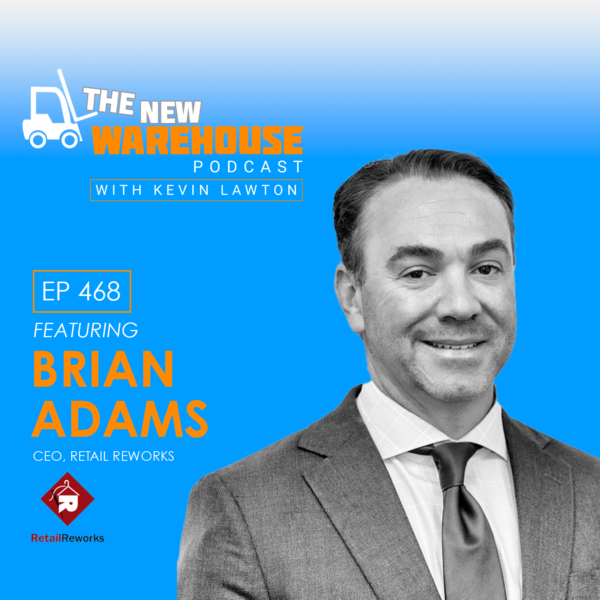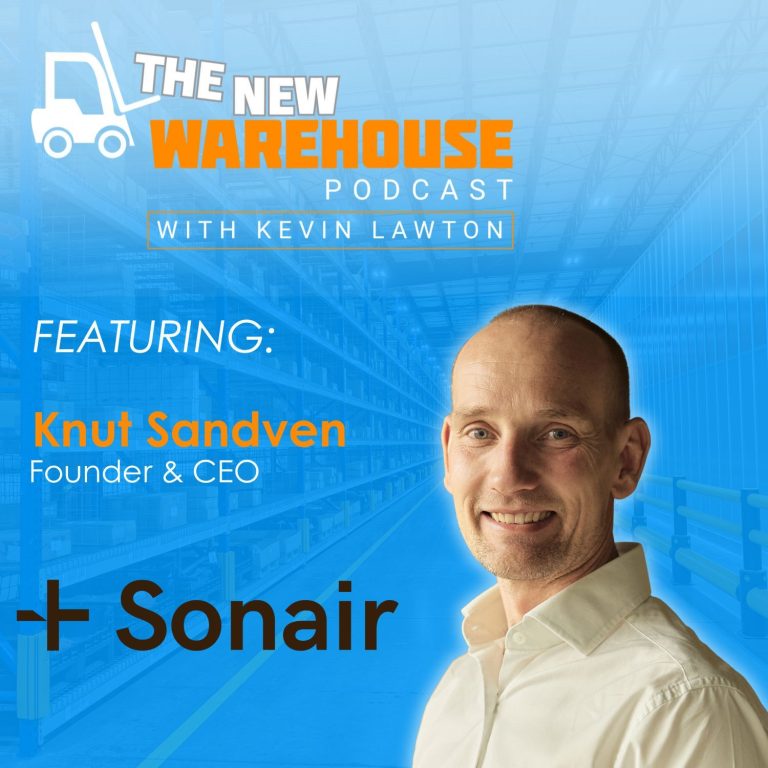It’s an away game for The New Warehouse Podcast as Kevin visits the headquarters of Retail Reworks in Houston, Texas. He engaged in a thought-provoking conversation on sustainable retail returns with co-founder Brian Adams. With an average retail return rate of over 16%, this $800 billion-plus industry needs sustainable retail returns practices. Retail Reworks focuses on innovating in returns, re-commerce, and remanufacturing. Be sure to tune in to learn all about the evolving challenges and solutions in managing returns, alongside providing a wealth of industry insights.
The Evolving Landscape of Retail Returns
The market for retail returns has undergone significant shifts, primarily driven by changes in consumer behavior and economic pressures. Adams notes,“I think forever, you know, returns are something that a 3PL had to do if they wanted to gain the business… And as return rates get higher and manufacturing costs get lower, returns became an impediment on people’s profitability.” However, the traditional model of handling returns has become unsustainable. He adds, “Returns are a very big piece in people’s businesses, not just a small line item on a P&L statement.” As consumer expectations have moved towards more lenient return policies, the economic burden on retailers has intensified. Adams highlights a pivotal moment in February 2023, marking a major correction in the valuation market, signifying the start of a new era in how returns are perceived and managed within the industry.
Pioneering a Sustainable Retail Returns Solution
Retail Reworks’ approach to addressing the return dilemma is not about selling a service but partnering for sustainable solutions. Adams emphasizes the importance of “making the circles smaller” to enhance the efficiency and sustainability of the returns process. By leveraging a network of locations and innovative software, Retail Reworks developed a system that allows for boxless, fraud-less returns, immediate refund initiation, and instant item availability for resale. This model not only cuts down logistical costs but also significantly reduces the environmental footprint of returns.
Towards a Circular Economy
As Adams discussed, the future of returns is undeniably circular. With a growing emphasis on sustainability and efficient resource utilization, the retail industry is gradually shifting towards models prioritizing circularity.“It’s all about speed… the faster you can recapture the revenue on the return, the lower that the cost of the inventory you’re going to have,” emphasizes Adams. Retail Reworks’ efforts to remanufacture and repurpose returned items into new products are a testament to the potential of sustainable retail returns.
Key Takeaways
- The landscape of retail returns is changing, necessitating innovative and sustainable management practices.
- Retail Reworks champions a solution that addresses the logistical and economic challenges of returns and promotes environmental sustainability.
- The future of sustainable retail returns lies in adopting circular economy principles, emphasizing the repurposing and efficient utilization of resources.











